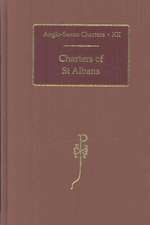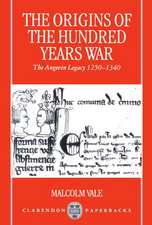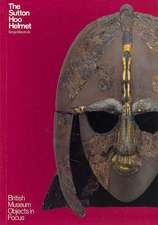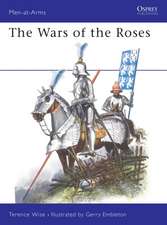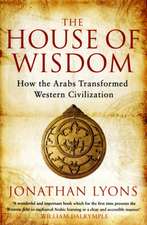The English Nobility under Edward the Confessor: Oxford Historical Monographs
Autor Peter A. Clarkeen Limba Engleză Hardback – 28 apr 1994
Din seria Oxford Historical Monographs
- 19%
 Preț: 497.26 lei
Preț: 497.26 lei - 12%
 Preț: 310.34 lei
Preț: 310.34 lei - 30%
 Preț: 539.99 lei
Preț: 539.99 lei - 15%
 Preț: 244.01 lei
Preț: 244.01 lei - 13%
 Preț: 532.53 lei
Preț: 532.53 lei - 30%
 Preț: 499.46 lei
Preț: 499.46 lei - 30%
 Preț: 497.67 lei
Preț: 497.67 lei - 30%
 Preț: 499.18 lei
Preț: 499.18 lei - 30%
 Preț: 498.68 lei
Preț: 498.68 lei - 30%
 Preț: 604.98 lei
Preț: 604.98 lei - 30%
 Preț: 497.63 lei
Preț: 497.63 lei - 24%
 Preț: 496.31 lei
Preț: 496.31 lei - 30%
 Preț: 498.68 lei
Preț: 498.68 lei - 22%
 Preț: 497.81 lei
Preț: 497.81 lei - 25%
 Preț: 556.27 lei
Preț: 556.27 lei - 14%
 Preț: 539.57 lei
Preț: 539.57 lei - 30%
 Preț: 500.29 lei
Preț: 500.29 lei - 13%
 Preț: 533.57 lei
Preț: 533.57 lei - 25%
 Preț: 569.72 lei
Preț: 569.72 lei - 30%
 Preț: 610.82 lei
Preț: 610.82 lei - 34%
 Preț: 1153.34 lei
Preț: 1153.34 lei - 51%
 Preț: 614.88 lei
Preț: 614.88 lei - 34%
 Preț: 1195.31 lei
Preț: 1195.31 lei - 34%
 Preț: 1035.84 lei
Preț: 1035.84 lei - 34%
 Preț: 1006.40 lei
Preț: 1006.40 lei - 34%
 Preț: 864.39 lei
Preț: 864.39 lei - 34%
 Preț: 1160.09 lei
Preț: 1160.09 lei - 34%
 Preț: 1432.67 lei
Preț: 1432.67 lei - 31%
 Preț: 328.46 lei
Preț: 328.46 lei - 34%
 Preț: 573.88 lei
Preț: 573.88 lei - 34%
 Preț: 1069.36 lei
Preț: 1069.36 lei - 34%
 Preț: 1004.62 lei
Preț: 1004.62 lei - 31%
 Preț: 329.49 lei
Preț: 329.49 lei - 34%
 Preț: 1153.28 lei
Preț: 1153.28 lei - 34%
 Preț: 1254.68 lei
Preț: 1254.68 lei - 34%
 Preț: 946.79 lei
Preț: 946.79 lei - 34%
 Preț: 962.63 lei
Preț: 962.63 lei - 34%
 Preț: 1126.38 lei
Preț: 1126.38 lei - 31%
 Preț: 469.27 lei
Preț: 469.27 lei - 23%
 Preț: 332.21 lei
Preț: 332.21 lei - 28%
 Preț: 374.93 lei
Preț: 374.93 lei - 34%
 Preț: 1049.14 lei
Preț: 1049.14 lei - 34%
 Preț: 1036.73 lei
Preț: 1036.73 lei - 51%
 Preț: 757.67 lei
Preț: 757.67 lei - 34%
 Preț: 1082.61 lei
Preț: 1082.61 lei - 34%
 Preț: 1155.39 lei
Preț: 1155.39 lei - 31%
 Preț: 328.53 lei
Preț: 328.53 lei - 34%
 Preț: 1110.12 lei
Preț: 1110.12 lei - 31%
 Preț: 487.75 lei
Preț: 487.75 lei - 34%
 Preț: 1153.41 lei
Preț: 1153.41 lei
Preț: 320.28 lei
Preț vechi: 409.76 lei
-22% Nou
Puncte Express: 480
Preț estimativ în valută:
61.29€ • 63.63$ • 51.11£
61.29€ • 63.63$ • 51.11£
Carte tipărită la comandă
Livrare economică 13-19 martie
Preluare comenzi: 021 569.72.76
Specificații
ISBN-13: 9780198204428
ISBN-10: 0198204426
Pagini: 400
Ilustrații: maps, line figures, tables
Dimensiuni: 146 x 219 x 31 mm
Greutate: 0.6 kg
Editura: Clarendon Press
Colecția Clarendon Press
Seria Oxford Historical Monographs
Locul publicării:Oxford, United Kingdom
ISBN-10: 0198204426
Pagini: 400
Ilustrații: maps, line figures, tables
Dimensiuni: 146 x 219 x 31 mm
Greutate: 0.6 kg
Editura: Clarendon Press
Colecția Clarendon Press
Seria Oxford Historical Monographs
Locul publicării:Oxford, United Kingdom
Recenzii
'Peter A. Clarke's book deserves to be welcomed as the first extended treatment of its subject, and as a work which demonstrates how much can be learnt about landowning society in pre-Conquest England ... his more detailed discussion of these landholders constitutes the most interesting part of the book.'Times Literary Supplement
It contains many valuable insights
What the study is to be particularly valued for is he new perspective it provides on the major landowners who did not belong to the earlish families...Dr Clarke has marshalled much valuable material which will stimulate the asking of further questions
In recreating even a rough picture, Clarke has performed a valuable service, especially since his appendices allow the reader to see the precise basis of his reconstructions and to discern the judgements that went into them.
The book is both interesting and useful.
The first comprehensive analysis of the lay landholders recorded in Domesday Book.
Clarke now makes a good proportion of the available evidence more accessible by bringing together in two massive appendices well over half the volume... Dr Clarke has provided a book that will be helpful to all interested in the comtinuing debates on the nature of late Anglo-Saxon society and the consequences of the Norman Conquest.
It contains many valuable insights
What the study is to be particularly valued for is he new perspective it provides on the major landowners who did not belong to the earlish families...Dr Clarke has marshalled much valuable material which will stimulate the asking of further questions
In recreating even a rough picture, Clarke has performed a valuable service, especially since his appendices allow the reader to see the precise basis of his reconstructions and to discern the judgements that went into them.
The book is both interesting and useful.
The first comprehensive analysis of the lay landholders recorded in Domesday Book.
Clarke now makes a good proportion of the available evidence more accessible by bringing together in two massive appendices well over half the volume... Dr Clarke has provided a book that will be helpful to all interested in the comtinuing debates on the nature of late Anglo-Saxon society and the consequences of the Norman Conquest.


